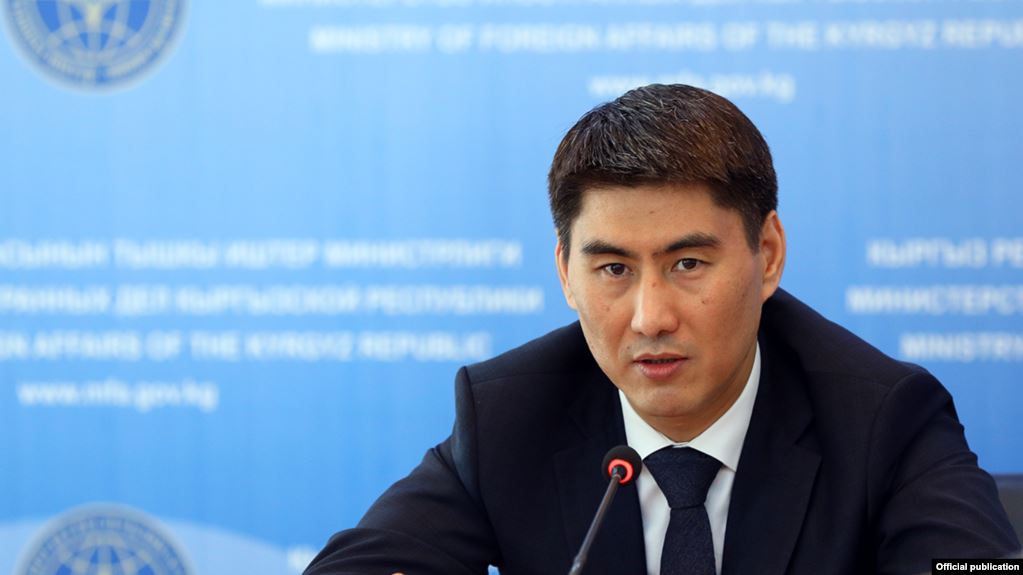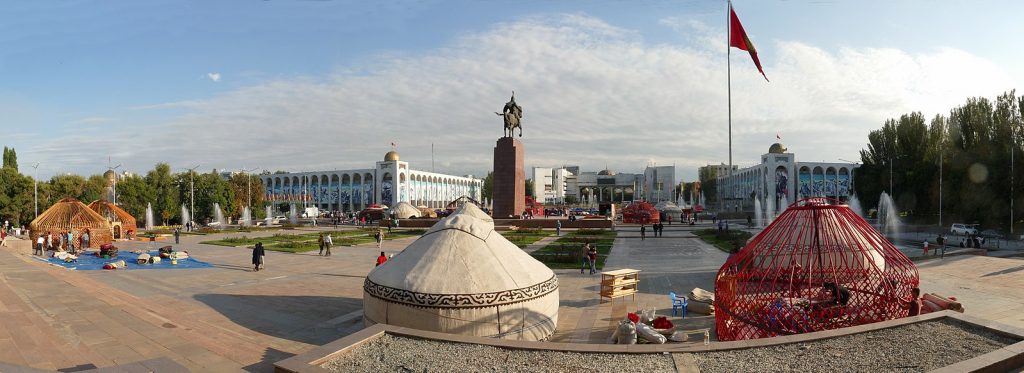Kyrgyzstan Among Six New Nations Added to Travel Ban
Recent Articles
Author: Nicole Wolkov
02/11/2020
The Trump administration announced its expansion of visa restrictions to six new countries including Eritrea, Kyrgyzstan, Myanmar, Nigeria, Sudan, and Tanzania on January 31. The current list includes Iran, Libya, North Korea, Somalia, Syria, Venezuela, and Yemen. The ban will take effect on February 22, and immigrants who have received visas before then will still be able to travel to the United States. Non-immigrant visas, such as student or worker visas, will not be affected by the ban. The administration stated that immigrants will be able to apply for a waiver from the restriction if the individual would encounter problems if denied entry to the United States.
The Department of Homeland Security and the Department of State said that Eritrea, Kyrgyzstan, and Tanzania had been added to the list for either failing to update their passport system or failing to share security information. Kyrgyz Foreign Minister Chingiz Aidarbekov stated that the United States’ consideration to place Kyrgyzstan on this list could be due to the country’s delay in switching to biometric passports. Another security concern is the possible presence of Islamic State militants in Kyrgyzstan utilizing fake Kyrgyz passports. The southern city of Osh is considered to be a center for counterfeit passports used by organized crime groups and money launderers. While Kyrgyzstan does have problems relating to terrorism recruitment, the last big terror attack took place in August 2016, when a suicide bomber rammed a car into the Chinese embassy in Bishkek. The perpetrators were not found to have a connection with the Islamic State. Additionally, evidence that attributed a 2015 gunfight in Bishkek to the Islamic State was flimsy. Some believe it is advantageous for Kyrgyzstan to blame terror acts on outside sources to better control the narrative to fit the domestic agenda and maximize prospects internationally. Another contributing factor is that some Kyrgyz students studying at U.S. universities or visiting the United States have previously overstayed their visas. Former Ambassador to the United States and Canada Kadyr Toktugulov posted on Twitter that Kyrgyz nationals already face a “relatively high” U.S. visa rejection rate.

Kyrgyz Foreign Minister Chingiz Aidarbekov. Source: RFE/RL
The Kyrgyz Foreign Ministry responded to the ban by stating that its implementation greatly damaged Kyrgyz-U.S. relations and failed to support commitments of cooperation. Relations between the two countries since the collapse of the Soviet Union have not been without difficulty. In 1993, a cooperation treaty between Kyrgyzstan and the United States was signed. However, in 2015, after the Department of State awarded a jailed activist the Human Rights Defender Award, the Kyrgyz government canceled the treaty. This, in turn, risked the millions of dollars’ worth of assistance the United States gave to Kyrgyzstan. At the same time, Kyrgyzstan was in the final stages of joining the Eurasian Economic Union, which would more directly align the country with Russia. After the September 11 attacks, the United States set up an airbase at Manas International Airport outside of Bishkek to serve as a logistical center for NATO operations in Afghanistan. However, in 2014 the United States closed the base after years of Kyrgyz pressure encouraged by Russia. Limited Kyrgyz-U.S. collaboration usually takes place through the Organization for Security and Cooperation in Europe or NATO. The United States’ main goal throughout the region is to support intra-Central Asian unity through the C5 + 1 Initiative with the aim of maintaining influence in this strategic region in the face of Russia’s and China’s considerable presence in the region. Unfortunately, the new visa restrictions on Kyrgyzstan have raised questions once again about Kyrgyz-U.S. relations.

Ala-Too Square in Bishkek. Source: Wikimedia Commons